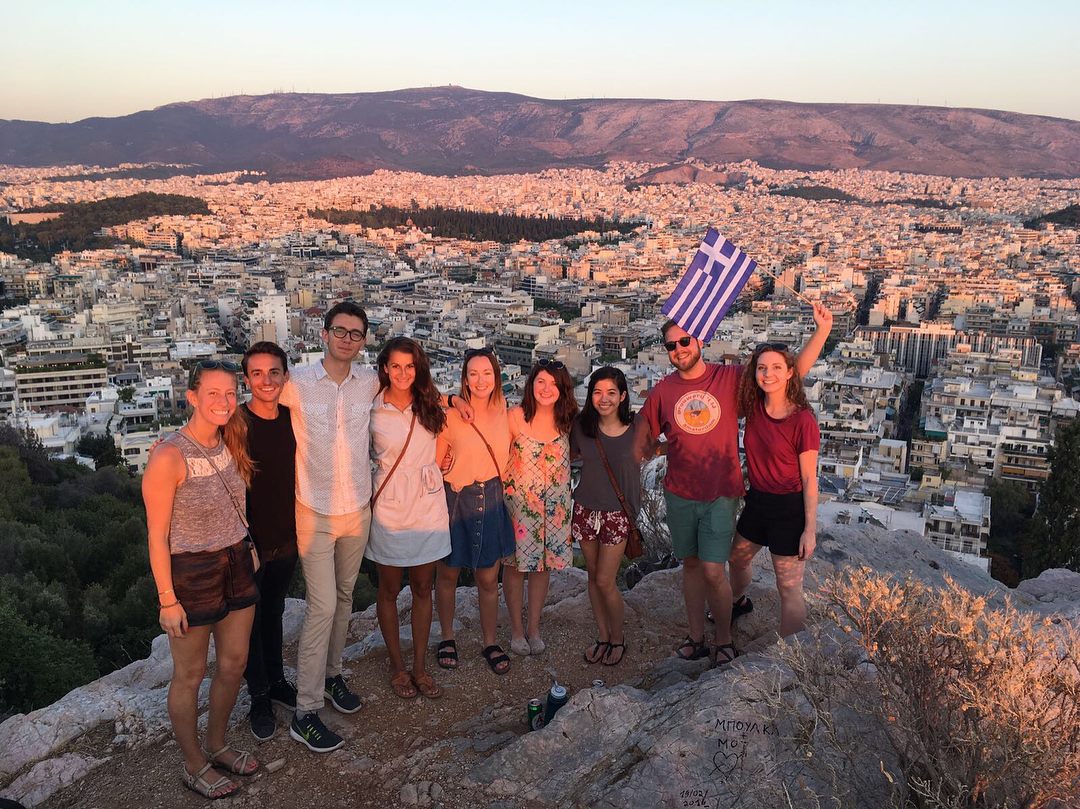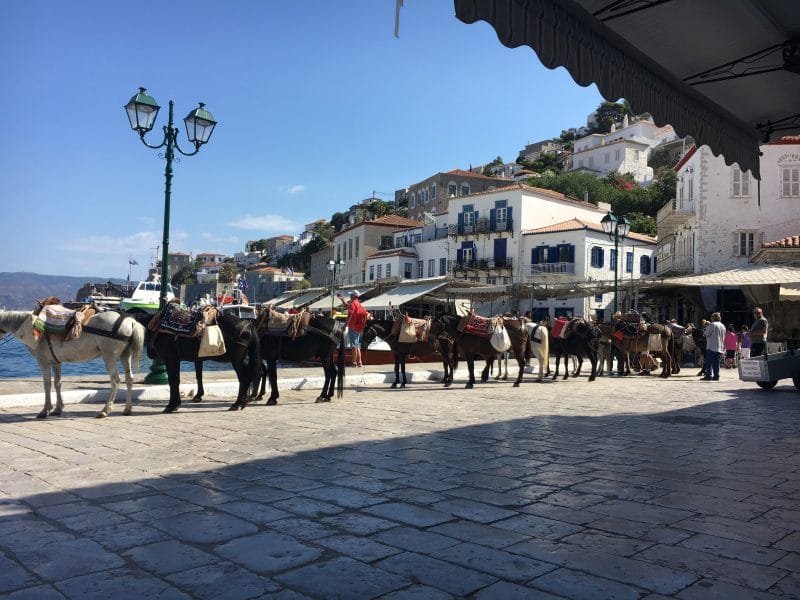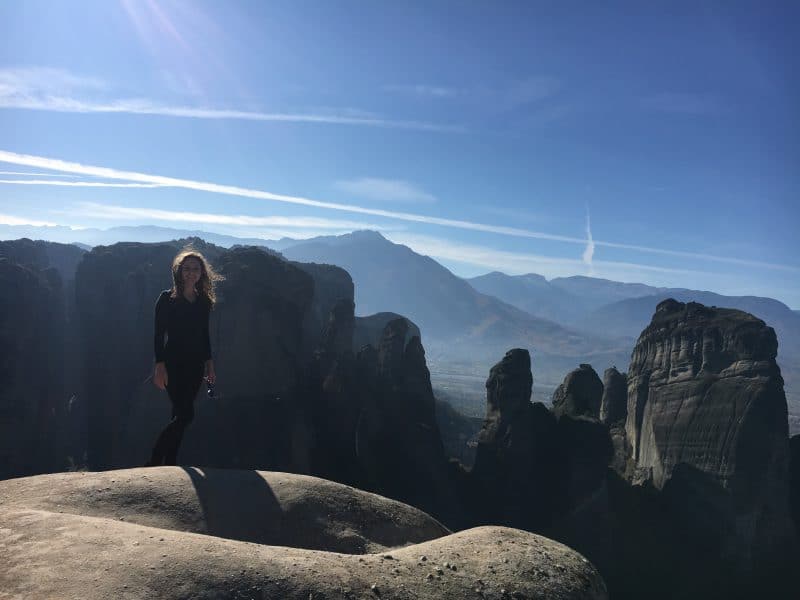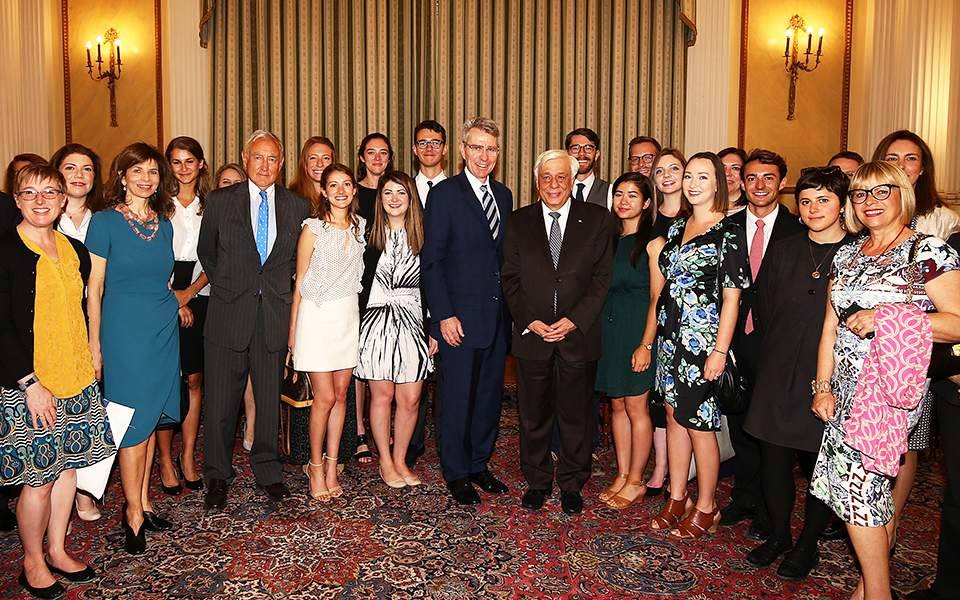
Our guest author Olivia Davis writes about her experience applying for and completing the HAEF (Hellenic American Educational Foundation) Teaching Fellowship, a Fulbright English Teaching Assistantship (ETA) program in Athens, Greece. Fellows, who are recent U.S. Master’s and Bachelor’s recipients, work in various positions throughout HAEF, creating a cross-cultural educational experience for students of various ages.
By guest author Olivia Davis
Early on in my senior year at the University of Mississippi, I went to a meeting and our fellowship advisor told us, “If you don’t know what to do after graduation, come see me.” I scheduled an appointment with him that afternoon! There, he told me about different fellowship options for recent graduates, and the Fulbright ETA caught my attention because of its cultural emphasis and opportunity to get pedagogical experience.
At the time, I was an English major and thinking about setting out to become a literature professor. While I loved the research component of my literary work, I had yet to be convinced on teaching in a formal classroom setting. The Fulbright would be a way for me to test those waters while also living abroad, something that had always appealed to me.
Fulbright ETAs are hosted in over 70 countries worldwide, but for me, choosing Greece was surprisingly clear! Things that had seemed really random in my past started coming together. As a freshman, I’d gotten my interest piqued in religious studies, and had decided to study Ancient Greek to fulfill both my foreign language requirement and get a handle on the New Testament in the original language. Eventually, I liked Ancient Greek enough to get a minor in Classics. This was a pivotal part of my application because it showed that I had a vested interest in the country I wanted to call home for a year.

The Program Experience
There are 12-13 fellows every year and we all had different jobs within the HAEF, which is located just north of Athens. Some worked in the library, others in the counseling office helping students write applications to American universities, and the rest of us were spread out among different grades of students. I was with middle schoolers.
I have many wonderful classroom moments and learned much from the teachers who graciously mentored me. I taught a large spectrum of English levels — ranging from basic grammar structures to original excerpts from Shakespeare’s plays, which was very exciting! I staged a debate between members of a 7th grade class on mercy and justice after we had studied The Merchant of Venice Together. Their enthusiasm to talk about different ideas in their second language was inspiring to me, and I feel like I learned as much from them as they did from me. Near the end of the year, I decided to share my southern American roots with my students and made them homemade biscuits with jelly and sweet tea. My entire kitchen was covered in flour by the time I finished baking them, but it was worth it when they proved to be a hit!
Our other fellowship activities included working with the after-school forensics team, where we taught public speaking, acting, and debate. We were all required to take Greek classes (an asset when we traveled beyond Athens!), and judged debate tournaments in various schools in the city. In the summer, we were summer camp counselors to young elementary children — a particularly fun night involved a camp out where everyone slept outside in tents! We were very busy during the entire fellowship program, and our lives brimmed with new opportunities and challenges!

The fellows were grateful that there were several long holidays, and I got to travel all over Greece and much of Europe during my time, a dream come true. One of the most beautiful places I went to was Meteora, a geographical feature in central Greece where twelfth- and thirteenth- century monasteries are built into magnificent towering rock formations. As we walked among the rocks, it felt as though we were transported in back in time.
In addition, fellows enjoyed getting to meet many high-ranking Greek officials, including President Prokopis Pavlopoulos and the United States Ambassador to Greece, Geoffrey R. Pyatt. Fulbright Greece did a wonderful job coordinating events so that we could meet previous Greek Fulbrighters to the United States and U.S. Fulbright Scholars studying or working in Greece. Finally, I benefited from the almost immediate friendship of many of the Fulbright ETAs, and we still keep in touch!

Tips for the ETA Application Process
The initial part of the application includes two essays. I have much gratitude to both to my Fulbright advisor as well as my thesis advisor, who helped me present myself in the best way possible (and who didn’t say no to me, even when I asked them to read my drafts…five times each). After that, I had an interview on campus. Two months later, I had an online interview (at 6:45 AM!) with my future coordinators at HAEF. A month later, I got the long-awaited email that I had been accepted! I cried for half an hour and then got Greek food.
My top tips:
1. When writing your essays, stress two things: your commitment to teaching and awareness of the cultural climate of Greece.
While I didn’t have formal classroom experience, I ran a piano studio in college. I began one of my essays talking about my students’ recital, emphasizing how I valued the arts as a teaching tool. While my Classics minor revealed my interest in Greece, it was also important that I showed I could make a positive difference in the country in both my students’ lives and the Athenian community.
2. In both interviews, stress your qualifications as an English as a Second Language teacher.
I was more prepared to talk about cultural ambassadorship and how I would emphasize cross-cultural communication than how I would actually go about teaching language and literature!
3. Be receptive to feedback along the way.
I had an on-campus interview where my committee reviewed my application essays and essentially told me to completely restructure them. I was disappointed that had to write yet another draft, but they were exactly right. Also, have several different people read your application — each person knows different facets of you and can give you useful perspectives!
Interested in applying? Bookmark the HAEF Teaching Fellowship – Fulbright Greece ETA to your ProFellow account.
Olivia Davis received a BA in English from the University of Mississippi. She was a 2017-2018 Fulbright ETA in Athens, Greece, where she taught at the Hellenic American Educational Foundation. She writes about calling and purpose at lookingupward.org.
(Disclaimer: The views and opinions in this interview are Olivia Davis’, and do not represent the Fulbright Program or the Department of State.)
© Vicki Johnson 2019, all rights reserved